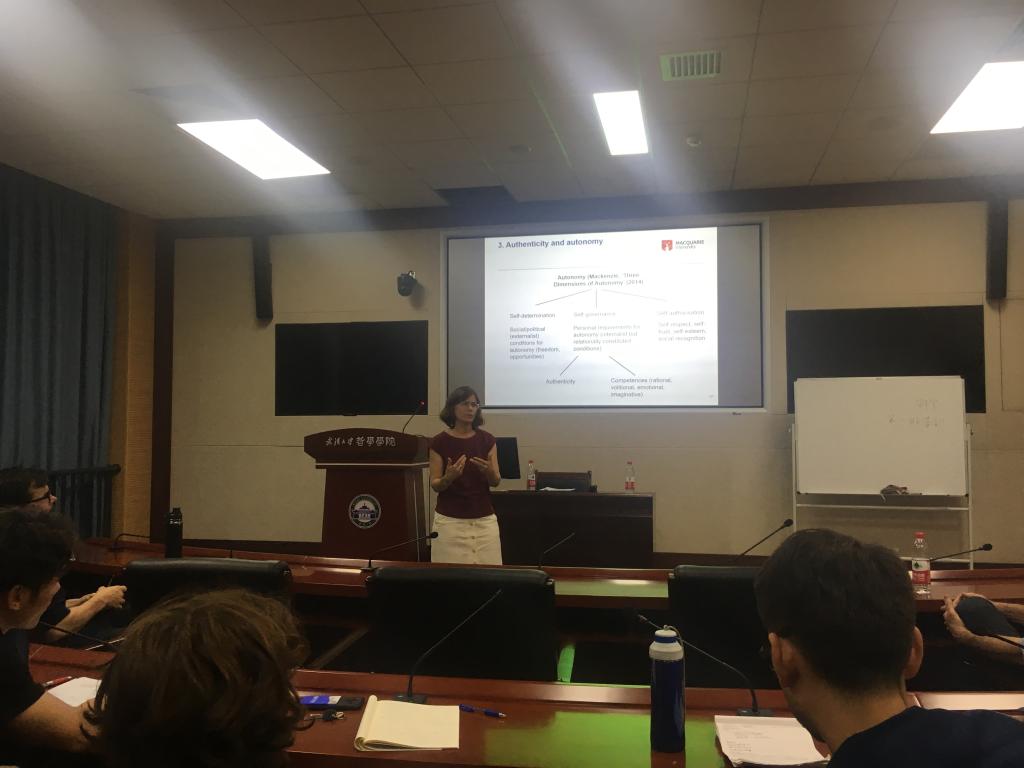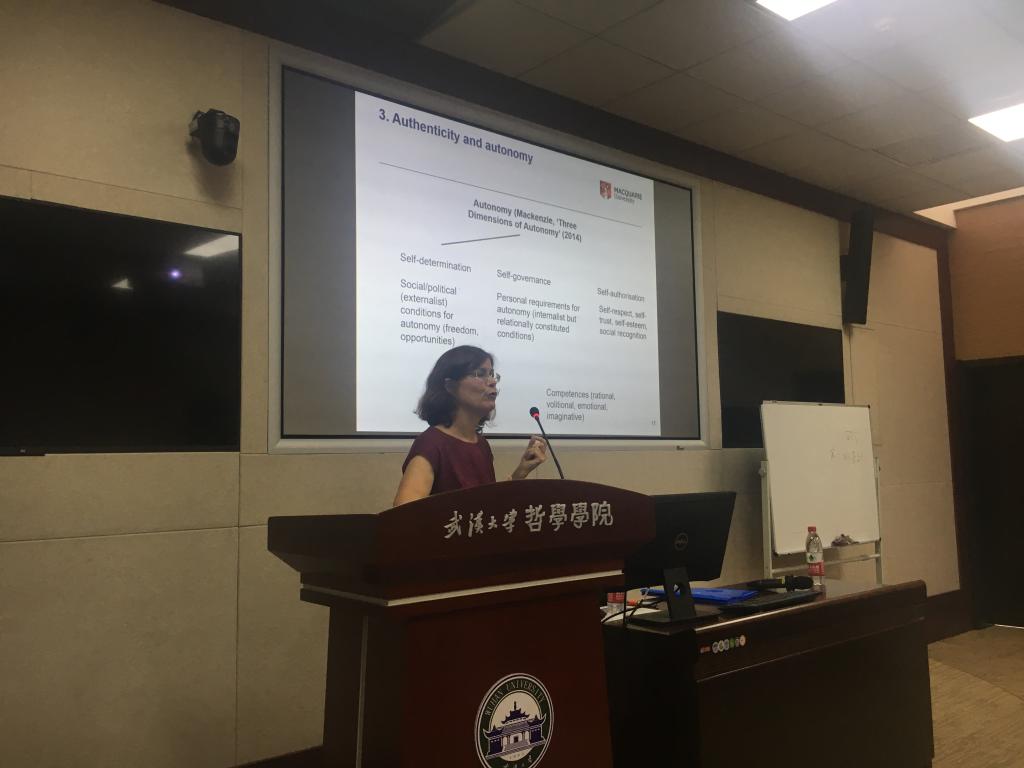On 26th September, as one part of the philosophy seminar series, Professor Catriona Mackenzie from Macquarie University presented a lecture for students and faculty members of the school of Philosophy. The topic of the lecture is “Neurotechnologies, relational autonomy and authenticity”.

Professor Mackenzie started from introducing background information. There have been some debates about the ethical implications of neurotechnological intervention in the language of authenticity. Professor Mackenzie claimed that nowadays normative framework of authenticity is overly individualist and should be reconceptualized through autonomy in order to deal with existing problems. To accomplish this task, the whole lecture was divided into four parts:(1) ethical concerns about neurotechonolgies, (2) the interpretations of authenticity, (3) the relation between autonomy and authenticity and (4) reconsider the ethical concerns through the new framework.
Firstly, Professor Mackenzie listed four ethical concerns pertain to neurotechnology. The first one is the change of method which emerges a sense of insecurity and a deprivation of authenticity. The second one is the problem of quietism. The third one is the worry of conformism. Last one is whether people should accept whatever is given without changing it artificially.
Then, Professor Mackenzie turn to “what is authenticity”. Usually, authenticity means to live one’s life in accordance with values or references that are “one’s own”. But when comes to its nature, there are several prevailing interpretations of authenticity, including Pre-modern notion, modern notion, substantive authenticity, procedural authenticity and extreme existentialist authenticity. Each of these views has defects and the framework needs fixing, which leading us to the third part of the lecture.
Professor Mackenzie suggested that we should understand authenticity in terms of autonomy, which shares similar meaning with authenticity. She argued that we can capture the notion of autonomy through three distinct dimensions: self-determination, self-governance, self-authorization. Self-determination highlights the social dimension of autonomy because it requires people to have enough opportunities or resources to control their life. Self-governance emphasizes the personal requirement of “internalist but relationally constituted conditions”, as she put. Self-authorization requires people to have enough self-esteem for themselves and social recognition at the same time. And authenticity is just one condition for self-governance. To achieve self-governance, skills and competences are needed as well. After analyzing thoroughly, Professor Mackenzie reviewed the ethical concerns mentioned before and believed some of them can be well handled.

At the end of the lecture, Professor Mackenzie interacted with the teachers and students on some relevant issues and offered some detailed explanations. The lecture was really enlightening and ended in a round of applause.
(Photo&Written by Zhang Tianyu)



